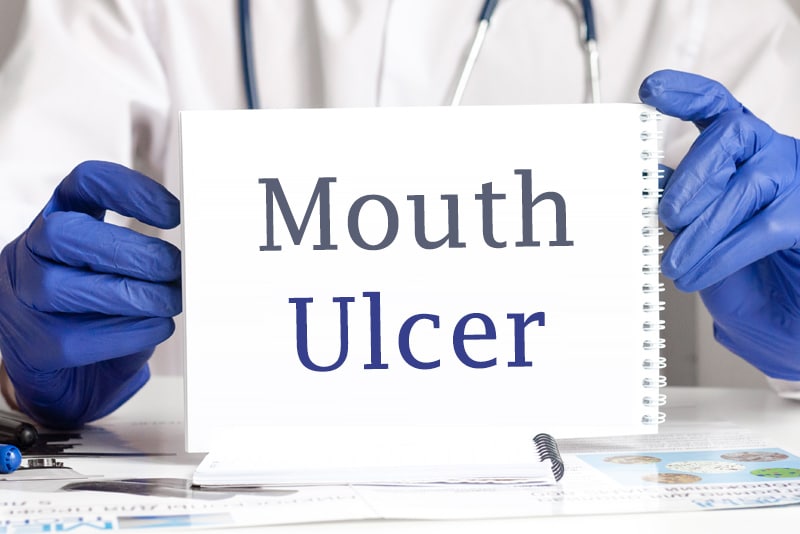Mucositis is a common condition that occurs when your mouth or gut becomes sore and inflamed. A common side effect of cancer treatments, the condition occurs when chemotherapy and radiotherapy treatments break down the epithelial cells lining the gastro-intestinal tract, leaving the mucosal tissue open to ulceration and infection. When the thin mucous membrane that lines the digestive tract becomes inflamed, it can be painful. Even though this condition can develop anywhere along the digestive tract, it is more common in the mouth or oral cavity. Oral mucositis is probably one of the most common and severe complications of cancer treatments. It can lead to several problems like pain, nutritional problems due to inability to eat, and increased risk of infection due to open sores in the mucosa. The condition can significantly affect the patient’s quality of life and may be dramatic for a period of time while a patient is being treated. However, it could also heal on its own within a few weeks of completing cancer treatment. Billing and coding for this oral condition can be challenging as the condition involves different symptoms which can range from mild to severe. Outsourced medical billing services would be a practical solution for timely claims filing and correct reimbursement.
High dose chemotherapy, and localized high dose radiation therapy to the head and neck region (for instance treatment of head and neck cancer and lymphoma), are the main factors that cause oral mucositis. Continuous administering of chemotherapy or radiation therapy causes severe injury to the mouth cells and tissues which reduces their ability to distinguish between ‘good’ normal cells or ‘bad’ cancer cells. This leads to severe break down in the lining of the mouth forming painful ulcers. In addition, bone marrow transplants and stem cell transplants can also lead to the condition. In most cases, these painful ulcers can occur anywhere in the mouth, but are most common on the tongue, inside cheeks, lips and soft palate (very back of the mouth).
Symptoms and Risk Factors of Oral Mucositis
Mucositis can cause a range of symptoms, many of which affect the mouth. In the beginning stages, there may be distinct areas of redness (erythema), which may soon progress to form painful ulcerations (usually appearing as round or linear yellow/white plaques). Some of the common symptoms associated with the condition –
- Discomfort and pain inside the mouth
- Trouble swallowing or talking
- Thickening of the saliva
- Sores and blood in the mouth
- Soft, white patches or pus on the tongue
- Shiny, swollen, or red gums
- Pain or a mild burning sensation while eating
- Dry mouth
- An increased amount of mucus
As mentioned above, about 40 percent of people who receive chemotherapy may develop mucositis to some extent. However, the risk is likely greater for people who also receive radiation therapy on the head, neck, or chest. Several prominent factors can increase the risk of mucositis and these include –
- Being female
- Poor oral health
- Lifestyle habits like chewing or smoking tobacco and drinking alcohol
- Having a low body mass index
- Having a chronic condition, such as kidney disease or diabetes
- Experiencing dry mouth before and during cancer treatment
- Being dehydrated
- Loss of appetite for food and drink
Diagnosis and Treatment of Mucositis
Generally, the signs and symptoms associated with the condition are often visible during the early stages of cancer treatment. Diagnosis of the condition will be based on the timing of the symptoms relative to the therapy and the clinical appearance of the mouth. In most cases, a physician may be able to diagnose mucositis as early as 1–2 weeks after radiation therapy or within 3 days of chemotherapy. A detailed medical history review and assessment of symptoms will also be performed where in physicians may look for sores and swelling in the mouth. As viral or fungal (yeast) infections can occur in the mouth occasionally (even due to low blood count), there is no specific laboratory or radiographic testing that is required to make the diagnosis. However, in some cases, a culture, or a scraping may be done to rule out the possible chances of an infection.
Depending on the severity and extent of discomfort, oral mucositis is treated symptomatically and usually involves targeting the infection while managing symptoms. In order to reduce the severity of symptoms, including pain, physicians may generally recommend – topical pain relief medications, allergy medications, corticosteroids, ice chips, popsicles, and other cold food items and sprays for preventing dry mouth. Physicians may also suggest options like – brushing the teeth more frequently each day, brushing with a soft toothbrush and using antiseptic mouthwash to prevent the chances of infections.
Treatment procedures administered by general physicians or other specialists must be documented using the right medical codes. Billing and coding services offered by reputable billing and coding companies ensure this so that accurate claim submissions are done. ICD-10 diagnosis codes for oral mucositis include –
- K12.3 Oral mucositis (ulcerative)
- K12.30 Oral mucositis (ulcerative), unspecified
- K12.31 Oral mucositis (ulcerative), due to antineoplastic therapy
- K12.32 Oral mucositis (ulcerative), due to other drugs
- K12.33 Oral mucositis (ulcerative), due to radiation
- K12.39 Other oral mucositis (ulcerative)
A self-limiting condition, oral mucositis follows a fairly predictable course and causes severe pain, discomfort and difficulty eating. As the infection is common among people undergoing cancer treatment (such as chemotherapy or radiation therapy), the duration and severity of symptoms can also vary greatly based on the specific cancer therapy administered. After healing, there are no residual symptoms or consequences of oral mucositis. Maintaining good oral hygiene and avoiding certain foods and hot, spicy, or alcoholic drinks can help reduce the risk of developing this mouth condition.
It is crucial for healthcare providers to remain updated about the associated ICD-10 codes to report oral mucositis correctly. Relying on medical coding services offered by AAPC-certified billers and coders can help physicians optimize reimbursement for the services they offer.




